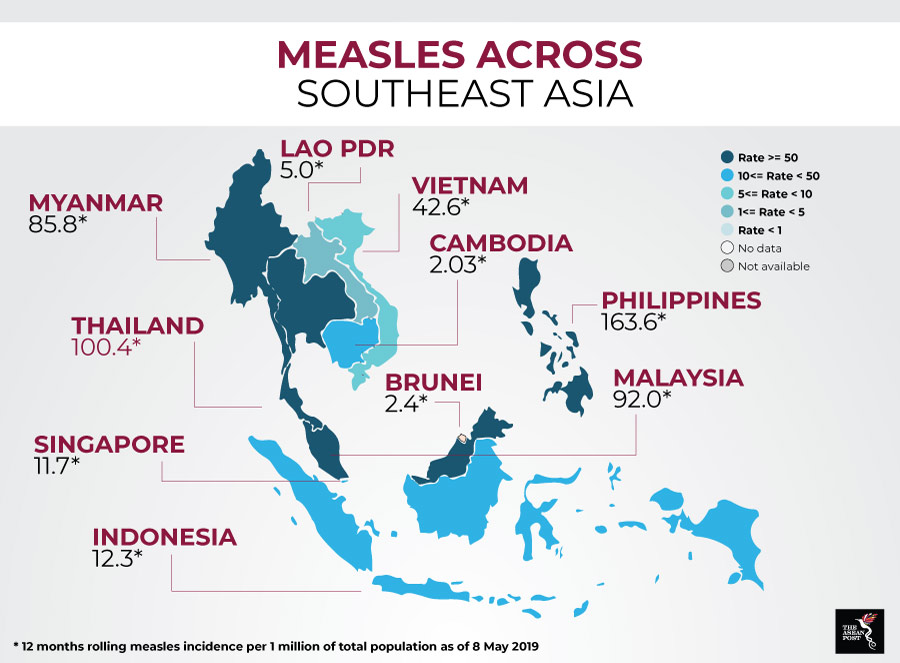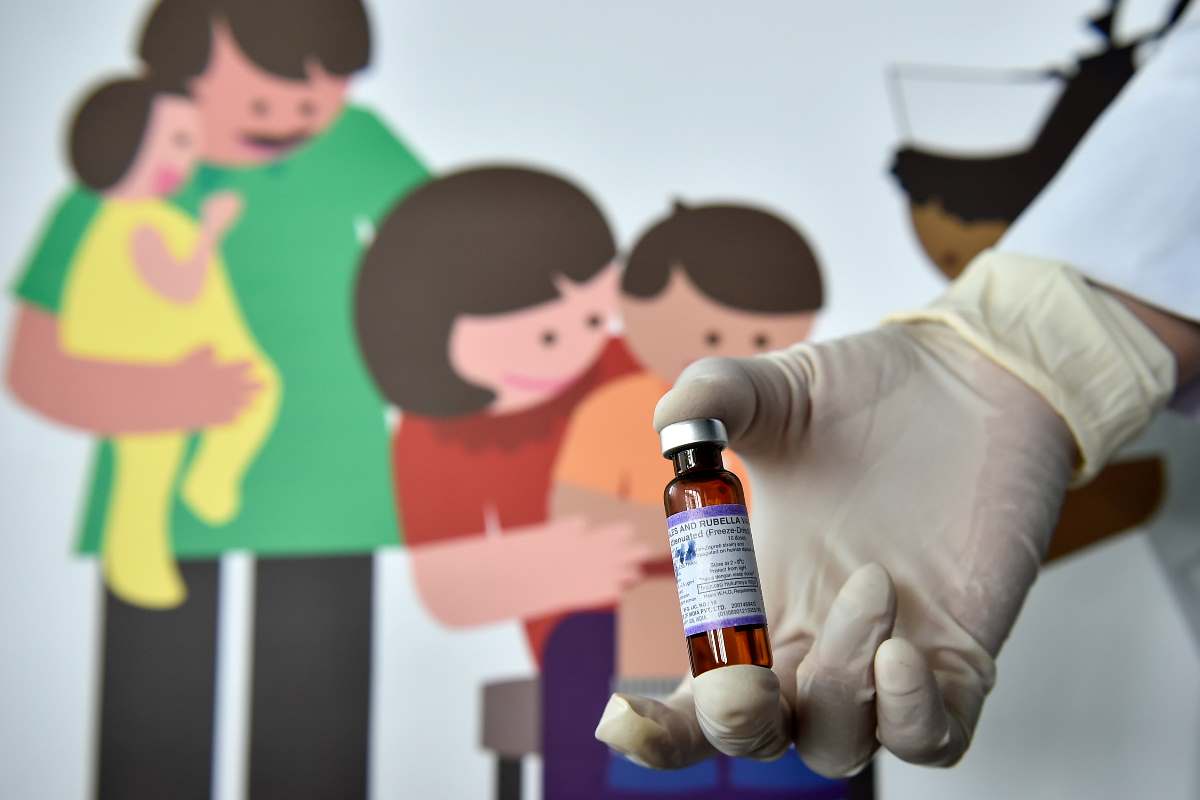Measles cases have been rising across the globe in 2019, with global data released by the World Health Organisation (WHO) last month showing that reported cases rose by 300 percent in the first three months of 2019 compared to the same period in 2018. This follows consecutive increases over the past two years and is a worrying trend across the world – and especially in ASEAN.
Over the past few months, there have been spikes in cases in Myanmar, the Philippines and Thailand which have caused many deaths – mostly among young children. Globally, the Philippines and Thailand – fifth and ninth respectively – are among the top 10 countries with the highest number of confirmed measles cases for the period between 8 May 2018 and 8 May 2019.
Measles is one of the world’s most contagious diseases, with the potential to be extremely severe. The WHO notes that in 2017 – the most recent year for which estimates are available – it caused close to 110 000 deaths. Even in high-income countries, complications result in hospitalisation in up to a quarter of cases, and can lead to lifelong disability ranging from brain damage and blindness to hearing loss.
The disease is almost entirely preventable through two doses of a safe and effective vaccine. For several years, however, global coverage with the first dose of measles vaccine has stalled at 85 percent. This is still short of the 95 percent needed to prevent outbreaks, and leaves many people, in many communities, at risk. Second dose coverage, while increasing, stands at 67 percent.
Malaysia’s Health Director-General, Dr Noor Hisham Abdullah, last year agreed that the main contributor to the rising number of measles cases was due to low immunisation coverage. According to him, the immunisation coverage on 12-month-old babies in Malaysia fell to 92.08 percent in 2017 compared to 94.37 percent in 2016.
“We need more than 95 percent immunisation coverage to provide herd immunity for measles,” he said. Herd immunity refers to a form of immunity that occurs when the vaccination of a significant portion of a population provides protection for individuals who are not or cannot be immunised. This is impacted by the rise of vaccination refusal by anti-vaccination movements, also known as anti-vaxxers.

No confidence in vaccines
Much of the anti-vaxxers’ crusade is driven by a 1998 paper published in The Lancet by British researchers lead by Dr Andrew Wakefield that suggested a link between the MMR vaccine and autism. However, the paper featured only eight children that were selectively sampled and was retracted by the Lancet. The gastroenterologist was later struck off the medical register in 2010 due to fraud for falsified data and financial gain as he was funded by lawyers involved in lawsuits against vaccine-producing companies.
However, for some anti-vaxxers, vaccination refusal for their children could also be based on religious and health beliefs due to components in the vaccine that are derived from porcine sources. For the Indonesian state-owned pharmaceutical company PT Bio Farma, this was a call for the development of a halal (permissible by Islamic law) measles-rubella (MR) vaccine. The company is working hand-in-hand with the Indonesian Ulema Council (MUI) to develop a version of the vaccination that fulfils the criteria set by the Islamic authority.
Although the council said the vaccine could be used as there were no alternatives, vaccination rates fell in Southeast Asia’s most populous nation to an average of just 65 percent – even falling as low as six percent in Sumatra’s Aceh province.
In the Philippines, a faulty dengue vaccine distributed nationwide dented public confidence in vaccines; causing measles vaccination rates in the country to hover at around 55 percent last year
To halt its re-emergence, evidenced-based information is much needed to separate fact from myth surrounding the measles vaccine. After the introduction of the measles vaccine in 1971, deaths caused by the highly transmissible disease were reduced from more than two million to around 100,000 annually. The vaccine has been so effective that we have forgotten what it was like to be plagued by this highly transmissible disease.
Related articles:
The best ways to reduce infant mortality
